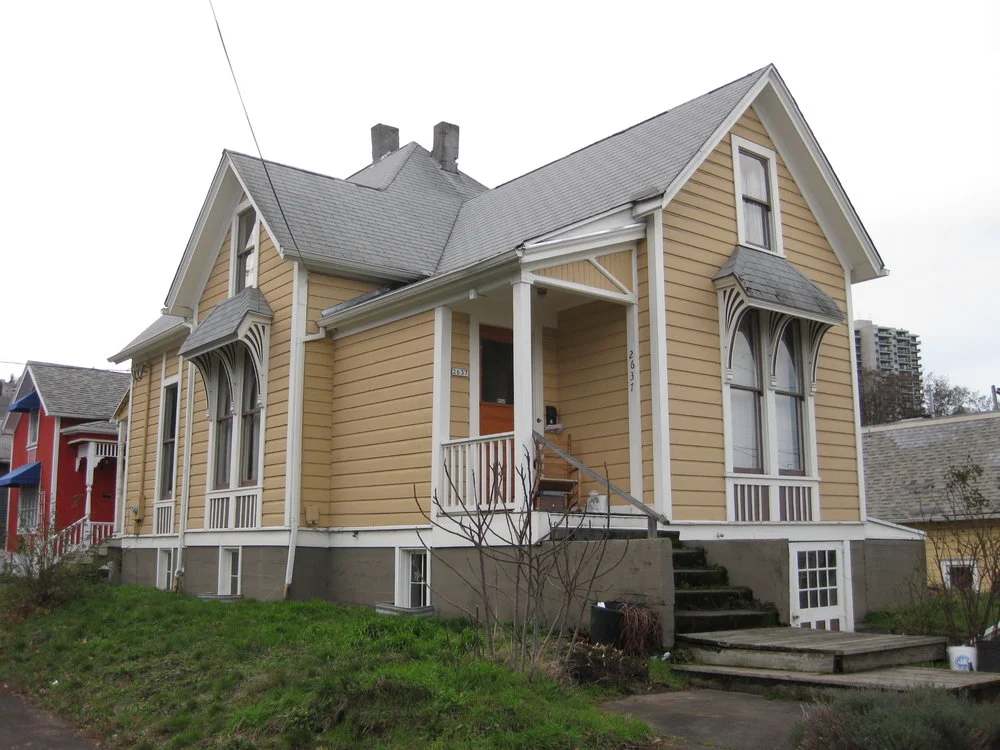This is Part II of ADUs from an Investor's Perspective. You can find Part I and Part III here.
Most homeowners are not professional real estate investors, so I wanted to dive into a deeper understanding of how a professional investor would think about ADUs as an investment option. While investment isn't the sole reason that people build ADUs, it is commonly a large driver. To gain some perspective on how ADUs perform as a real estate asset, I interviewed a local real estate investor in Portland, Oregon, Dani Zeghbib. This is Part II.
Kol: Let’s now remove the poorly performing house from the investment equation. Let’s now assume that it is meeting the 1% rule. It was purchased for $200K, and it fetches $2000/month.
Dani: Are you asking whether the $160k ADU that rents for $1500 is a “good” investment, if the main house is also rented out at $2000/month and it was purchased for $200k?
You may not like my answer: “It depends.” Where is this ADU located? In some markets like the Midwest and South, this would not be the best way to invest $160k in real estate, if the goal is monthly cash flow. There, it’s not uncommon to see gross monthly rents at 2% of the initial purchase + rehab cost.
Would I do this deal in Portland Oregon? Probably, unless I had a better deal in the works. But I’d do whatever I could to maximize that rent. If it can be built for $170k as a 2 bedroom 2 bath, I would more likely do that. If it could be built for $200k and I can add a 2 car garage below (if the main house doesn’t have a garage), then I’m increasing the overall property value and potentially building a rentable storage space/garage. In a “nice” residential neighborhood in Portland, a single car garage can rent for $200/month. If I can build two of those below my ADU, then I can either earn another $400/month in gross income, or I can have a place to park my car, or I can rent it as separate storage space to my ADU tenants. Or, I’m future-proofing the property in case laws change and a third unit is later allowed (which will happen in 2018 in some parts of Portland with the “Residential Infill Project.”)
I realize that these sorts of ideas may not be what the average homeowner is thinking about when they design/build an ADU, but that’s why you asked for my input. If they’re not thinking about it, they might want to. Building a small house is a big investment. Most homeowners have limited funds to invest, so they want to choose wisely where they put those funds.
If you could choose between investing $160k and earning an annual $10,800 net income (based on 40% expenses on the $1500 one bedroom rental), or investing $200k and earning an annual $17,280 net income (based on 40% expenses on the $2000 two-bedroom and two $200/month single car garages example), which would you choose? The former returns 6.75% and the latter returns 8.64% annually (“cap rate”).
Now, including the main house in the equation (since that’s what the question asked), say I also spent $200k on that and earn $2000/month in gross rents. Because that main house was not new, I’ll use the real estate investment rule of thumb of 50% expenses (which includes capital expenditures like new roofs, water heaters, HVAC, etc. averaged over time). My net operating income on the main house only would be about $12000. That’s a 6 cap (or 6% annual return). That’s an average to pretty good cap rate for a nice neighborhood in Portland today (January 2018). But I’ll talk more about what makes a “good” return in a moment.
First, let’s average the cap rate of both the ADU and the main house to find the overall cap rate for the entire property. In the best case scenario where I earn 8.64% on the ADU, that’s an average 7.32 cap for the entire property. That’s actually pretty good for Portland real estate.
Looking at those percentages, however, some sophisticated investors and business owners might think, “but I earn 10 or 12 or 15% on my other investments/business each year.” This is something to consider. Taking the IRR of your investment into account (which includes appreciation on the ADU over time), if you can do a lot better with another investment or business with the same amount of risk and/or work, you might decide to invest your money in that other investment instead of building an ADU.
I have rental properties but I don’t own another business. My brother owns a business but doesn’t own rental properties. When I asked him why he hasn’t considered buying any rentals, he replied, “Why would I buy a rental property to get a 6% return on my investment--with all the hassle of being a landlord--when I can send one email blast through my business and earn a 10% return?” Good question.
Personally, I enjoy owning rentals because I’m an architectural designer and can be creative in my remodels. I also just really like houses and the concept of home. For me, landlording isn’t just a way to earn “passive” income. (It’s not passive at all, by the way.). Providing housing with thoughtful attention to detail is a passion of mine, and why I do it.
Kol: Now let’s look at the more common scenario where the homeowner is actually living on the property in the primary house. Would it then make sense to build an ADU at the same cost with the same projected rental income? Assume that Lia is comfortable and interested with being a landlord on her property, but only if it makes financial sense to do so.
How would it make sense for Lia to think about the ADU as an investment?
Dani: If Lia lives in the main house then, as an investment, the ADU would pencil at the cap rate I mentioned in the previous question--IF the cost to build and the cost to rent were in line with the numbers you and I provided. I’m not sure that an 800 square foot ADU plus 2 car garage could be built for $200k in Portland for the average homeowner (vs the builder’s actual cost without markup), and/or that rents would be $2000 for a 2 bedroom plus $200 per garage in Lia’s neighborhood, but if it could be built for that cost (and if rents were in line with those numbers), and if Lia didn’t have better investments/businesses she could fund with that same cash she’d spend on the ADU, and assuming she wants to be a landlord (and everything that entails, especially in the landmine that is the ever-changing City of Portland Landlord-Tenant Law), then the ADU might make sense as an investment for her.
Would I build that ADU? If I could build something for $200k in a nice part of Portland that I knew would return $2400 in gross rents, I probably would, especially if I could leverage the cost and didn’t have to use much out of pocket cash. There are tax benefits that go along with real estate (e.g. depreciation) and borrowing money for a business (interest write-offs), and other creative strategies (e.g. 1031 exchange to leverage up your real estate portfolio) that, for me, make real estate an attractive “investment vehicle,” as they say. Also, I like having control over my investments, unlike in the stock market--where salaried managers and the public’s emotions play a big role in the changing value of the asset/stock.

